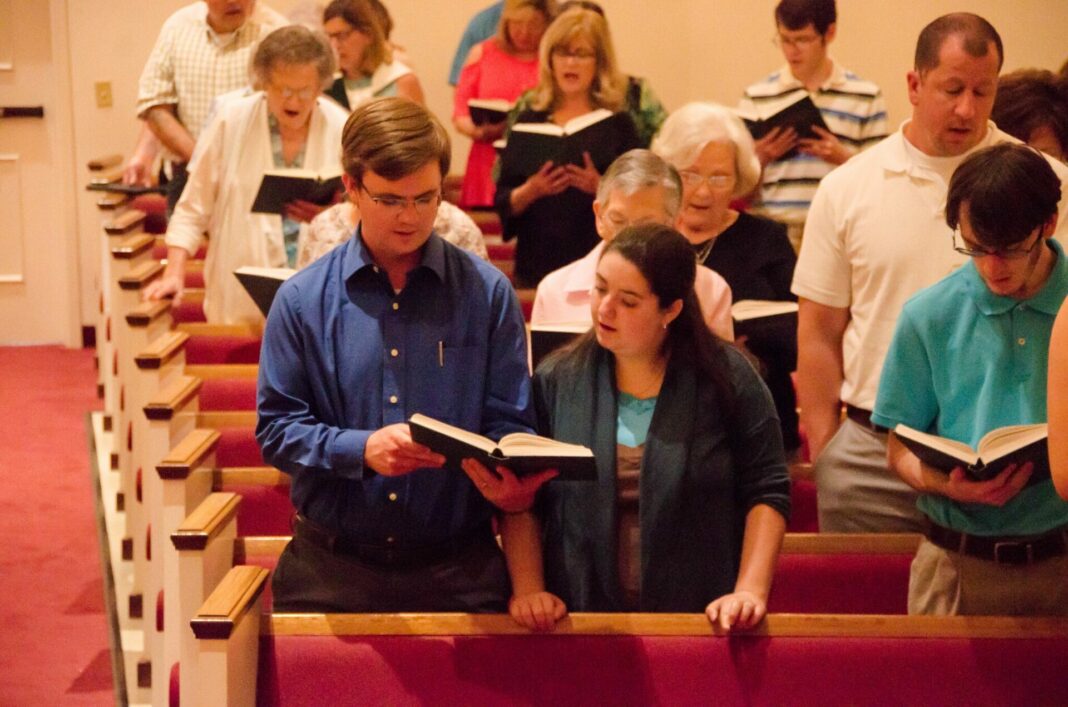As a student of Christian history and an off-and-on conservative, I continue to be confused by the combination of Roman Catholic identity and Front Porch location. The idea of localism is not one that goes readily with the hierarchy of bishops and the universal rule of the papacy. Everyone has their mysteries and inconsistencies, but I do wonder why the Roman Catholics who promote localism do not consider identifying with those other Christian communions where localism actually takes place — namely, Protestant denominations.
This is not intended as some form of Protestant triumphalism, mainly a form of push back to the sort of Roman Catholic pride that you often hear in conservative circles — like the one I heard at the very first conservative conference I attended: “every one knows that to be a consistent conservative is to be a Roman Catholic.”
The alternative may be that some people intuit that to be a localist Christian is to be a Protestant.
If readers at this website are at all intrigued by that spin on Christian history, they may also want to listen to a new podcast called the Paleo Protestant Pudcast. It features three historians at Hillsdale College, Miles Smith (Anglican), Korey Maas (Lutheran) and yours truly (Presbyterian, possibly even vinegary Presbyterian). The purpose of the podcast now into its four episode is to talk about church life in our respective communions, how each group looks to the other, what (if any?) news our churches generate, and why so few American Protestants know about confessional Protestantism.
Thus far, four episodes are available, the first a general introduction to Protestantism that is neither evangelical (born-again) or mainline (DOA), the second on seminaries and denominational identity, the third on Lutheranism’s inferiority complex, and the most recent on why Anglicanism is so darned appealing to evangelical Protestants.
This is likely not every Front Porcher’s cup of tea, but the podcast is decidedly localist.










“why the Roman Catholics who promote localism do not consider identifying with those other Christian communions where localism actually takes place — namely, Protestant denominations”
Not a hard question, really.
“Localism” is a cultural and political commitment; to be Catholic or Protestant is a theological and spiritual commitment. For most serious Christians, one’s confession of faith (and therefore one’s ecclesial affiliation) are far more fundamental than any cultural or political loyalty. I would think (and I certainly would hope) that a Roman Catholic would be, and remain, a Roman Catholic only because of a firm belief that the Roman Catholic faith is the true faith, and that the Roman Catholic Church is the true Church. If a Catholic no longer believes that, I would welcome him into my confessional Protestant Church (I am an LCMS Lutheran); but I would not have him compromise his confession of what he believes, in good conscience, to be the true faith because of the claim that another Church body comports better with “localism.”
Would you?
Further, I think the claim that confessional Protestantism is more “localist” than Catholicism is dubious. A truly localist Christian congregation is one which is a true parish (where “parish” is primarily a geographical term). A parish Church is one which serves, and draws its membership from, its local area; and one which regards everyone who lives in the geographical parish (whether or not they are formal members or ever darken its door) as under its spiritual care.
My experience of Protestant congregations is that many if not most are “destination Churches” rather than “neighborhood Churches”, which try in various ways to market themselves to an identifiable ecclesial demographic. If successful in this marketing, they draw worshippers from a very wide geographical area who are attracted by the congregation’s “specialty”, be it traditional high-Church liturgy (my particular weakness), emotional praise bands, family-friendly programs and activities, etc. People drive miles, past several Churches of their own denomination, to get to one of the “style” that they prefer (I pass two LCMS Churches on my way to Church every Sunday). There is nothing localist about that.
Catholicism isn’t immune to this phenomenon, of course. But every Catholic diocese is divided up into geographical parishes, and the majority of Catholics attend the Church in the geographical parish where they belong. Ask a Catholic parish priest who his “clients” are, and he will probably tell you “every Catholic who lives in my parish.” That is localism.
I am not a Roman Catholic, because I do not believe as a Catholic. But my Lutheran Church would do well to emulate the RC Church’s localism.
I’m glad to see something for this niche start up. If ya’ll ever want to talk about Baptists, southern Baptists, former southern Baptists, angry moderates, Baptists that didn’t/don’t like the term evangelical, Baptists that do, and so on, let me know. There’s a lot of localism to those stories.
Simply put, because Catholicism is true. Catholics can and in fact ought to campaign for a bit more decentralization (perhaps even a total overhaul of the seminary system) and for more autonomy of local bishops – it’s not like the institutional structure of the Church is dogmatic and unerring. However, I cannot become a Protestant because simply put, the Catholic Church was founded by Christ and Protestantism is a lack of full Communion with that Church.
Comments are closed.